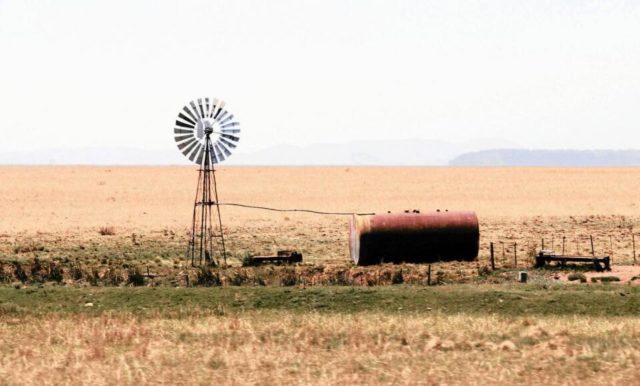Disaster relief support for farmer in the Northern Cape has come to a grinding halt since lockdown regulations have been put in place.
THE DISASTER relief support for farmers in the Northern Cape has come to a grinding halt since lockdown regulations have been put in place amid the Covid-19 pandemic, according to Nicol Jansen, president of Agri Northern Cape.
According to an article on KLK, Jansen stated that farmers were faced with two very significant challenges.
“Firstly, they need to deal with the challenges regarding the national lockdown, but also the national state of disaster that was declared earlier this year due to the calamitous drought throughout the western parts of the country. It also seems that the drought and the negative effects thereof have fallen by the wayside,” he said.
Jansen pointed out that the government had previously announced that R500 million would be made available for drought relief, of which the Western Cape received R25 million. “However, nothing has been made available for the Northern Cape.
“What makes matters worse is the fact that commercial farmers do not qualify for the Covid-19 grant funding that was announced by the government. If this fund was set up in such a way that farmers in drought-stricken areas could also apply for help, it would have made a massive difference in managing the effects of the drought period,” Jansen added.
R300 million was also allocated to the Northern Cape by the Department of Water and Sanitation, but, according to Jansen, nothing has come of it so far. “About R85 million had been designated for boreholes and other water infrastructure within the agricultural sector.”
Jansen stated that this lack of funding made it extremely difficult for farmers in drought-stricken areas to continue with business as usual. “The lack of water clearly has an immensely negative effect on aspects like cash-flow and continuing to work with already severely reduced livestock herds.”
The DA has meanwhile raised concerns regarding the future of the Land Bank.
The party’s spokesperson on Agriculture, Land Reform and Rural Development, Annette Steyn, said this week that it would write to the chairperson of the agriculture, land reform and rural development portfolio committee, Zwelivelile Mandela, to urge him to schedule an urgent meeting to discuss the future of the Land Bank.
“Reports on Monday indicated that the Land Bank was on the verge of defaulting on its debt,” Steyn said.
She pointed out that the entity’s woes had been brought on by the fact that for years the government was slow in its response to various droughts and other agricultural disasters. “This resulted in the Land Bank being unable to maintain a low default rate. Impairments and defaulting clients increased, which had an inevitable knock-on effect as some of the intermediaries that the Land Bank uses to extend their facilities to, were also affected by this problem.”
Steyn said that the high vacancy rate, the revolving door of CEOs, as well as the Moody’s downgrade further exacerbated the problems at the entity.
“The financial and operational conditions at the Land Bank is a cause for great concern, especially in light of the myriad of challenges farmers are currently facing due to the Covid-19 lockdown. These challenges must be prioritised by Parliament during this time and regular agriculture meetings should be placed on the parliamentary schedule.
“The recent drought and outbreak of diseases such as foot-and-mouth disease (FMD) have placed the South African agricultural sector at massive risk. Agricultural debt is growing and is estimated at R200 billion currently; 25% of the debt book of agriculture is funded directly through the Land Bank.”








